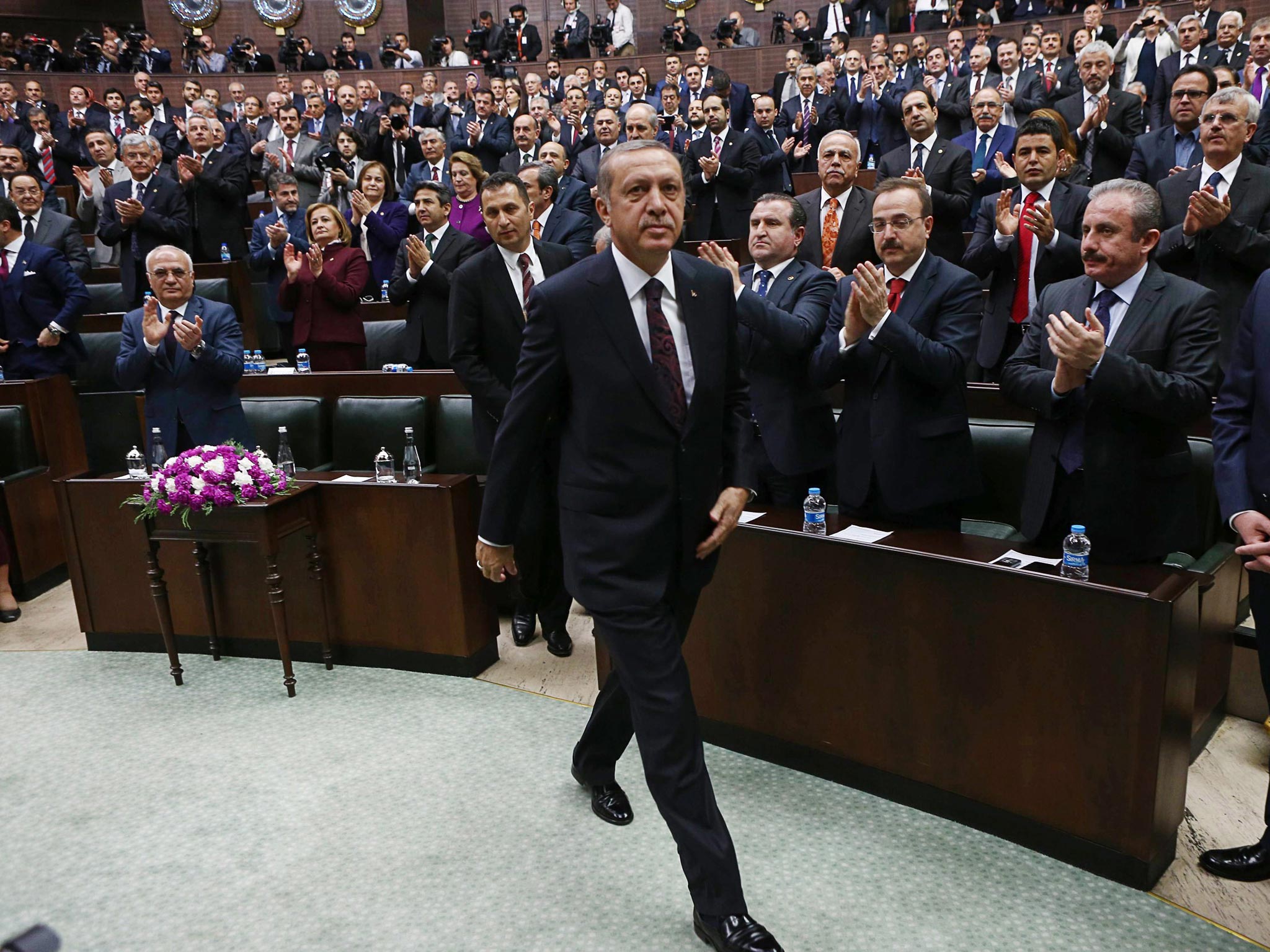Turkish ruling party's social media campaigners deny being a troll army
Erdogan activists have adopted the same tactics protesters used against his regime two years ago

On the fifth floor of a business block on the edge of Turkey’s financial district, dozens of young people are busy pumping out social media content. These Istanbul urbanites are a far cry from the usual conservative profile of supporters of Turkey’s ruling Justice and Development Party (AKP). But they are all working to ensure the party secures a super majority in Sunday’s election.
On Twitter, Facebook, YouTube and almost any other social media, 180 content-makers, monitors and field communicators work in shifts 24 hours a day to spread positive messages about the party.
The New Turkey Digital Office has been hailed as the AKP’s attempt to counteract the thousands of Gezi Park online activists who used the social media platform to organise the protests that hit the government two years ago.
Its critics compare it to a Putinesque troll machine, but Gokhan Yucel, the young Oxford-educated head of President Recep Tayyip Erdogan’s “digital army”, prefers to think of it as more like Obama’s social media strategy circa 2008.

“I am not the chief troll,” says a weary Mr Yucel, clearly tired of the question. “Look, we’re not hiding anything. If we were trolling, I wouldn’t invite journalists here.”
Tweets go through the official AKP account as well as hundreds of others that target groups such as the Kurds, women and first-time voters.
Mr Yucel is excited about a mysterious new in-house social media platform developed by the office itself, although he says its name can’t be revealed for “security reasons”. He says he gets hacked by opposition activists. “But I guess it’s the price we pay for the success of our strong PR,” he says.
The new platform will be launched after the election. At the moment the staff are too busy dealing with hackers and coordinating their wholesome election messages.
But while the in-house-produced content may have reached millions of Turks, it’s the punchy, organic grass-roots efforts of the opposition that have grabbed national and international press attention.
The latest example came last Monday, as President Erdogan attended a rally in the northeastern province of Igdır. A group of women, apparent supporters of the pro-Kurdish HDP, turned their backs during his speech.
“If you have a modicum of politeness, honour and ability, then the place for politics is parliament,” railed Mr Erdogan. Thousands of women across Turkey then posted similar photos on social media and “we are turning our backs” eventually became the third top-trending hashtag.
If the HDP succeeds in its aim to reach the 10 per cent threshold needed to enter parliament in tomorrow’s elections, it will be a serious blow to the AKP’s goal to create the super-majority needed to change the constitution and grant Mr Erdogan more presidential powers. Its funds, however, as it takes on the ruling party, are short, meaning social media campaigns are all the more important.
The HDP is not alone in facing the might of the AKP’s digital army, The biggest opposition party, the secular left-leaning CHP, remains unconvinced by Mr Yucel’s protestations that this is more than simply organised trolling.
Fatih Guner, the digital group head of the CHP election campaign, claims his party has not only found it difficult to advertise with traditional media, but also that PR agencies have refused to work with it for fear of repercussions in going up against the AKP.
“They are employing high-school tactics, these AkTrolls,” he said, referring to the colloquial name for the group.
Join our commenting forum
Join thought-provoking conversations, follow other Independent readers and see their replies
Comments
Bookmark popover
Removed from bookmarks